The Journal of a High School
Tennis Coach
(or How I Quit the Movie Biz and Found Out
They're Basically the Same Thing)
By Rocky Lang
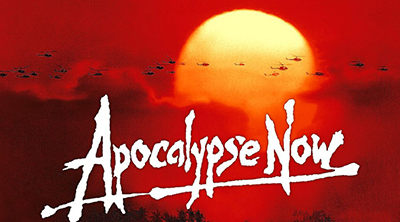
"I'm Gonna Make Him an Offer He Can't Refuse." After nearly 45 years in the movie and TV business as a producer, director, and writer, I started teaching tennis during the pandemic. As a lifelong player and a RSPA-certified tennis pro, I realized this was the life—no stress, no conflict, and no worrying about selling the next project. I soon had nearly 50 students on my home court and was having the time of my life.
Then, a dear friend, Marty, and his wife, Steph, who coached the women's varsity tennis team at No Name High School, wanted to spend more time on her boat. She also coached the boys' team and decided she had too much on her plate and suggested I take the job. My first thought was of Robert Duvall walking through enemy fire in Apocalypse Now, bombs blowing up right and left, yelling, "I love the smell of napalm in the morning." I thought, Why the hell would I take a job like this?
My life was my own, and I liked it that way. But after some convincing from the athletic director and my wife, I agreed—just for one season. Just one Tour of Duty – after all, it could be one of The Best Years of Our Lives. I was already coaching a couple of the kids on the team, and they were great players. Plus, as a father of daughters, I understood a lot about what young women go through. Maybe I could be a mentor, not just a coach. Hey, it could be fun. As Jason Siegel said in the 2008 film Forgetting Sara Marshall..."What could go wrong?
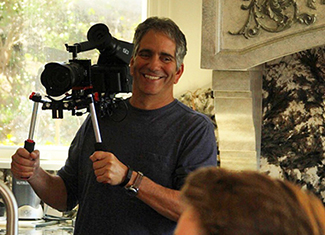
I approached the job with the same enthusiasm as launching a new film. I was excited to build a program, just like I had been excited to make movies. My films were always issue-oriented, and I wanted this to be more than just hitting a tennis ball. Directors approach movies with a vision of how to make them a success. Sometimes it works, and sometimes it doesn't, but a dream without a process is always a nightmare. I had a process. I had a plan. Winning was secondary to learning not only to play the game but to love the game.
Then, reality hit.
It turns out high school coaching was eerily similar to Hollywood. The administration was the studio, the parents were the agents, the players were the actors, and I, the coach, was the director. And Steph hmm Steph. She was like the disgruntled director who left the movie and wanted to make sure it collapsed.
Hollywood is strange—it's such a hard business that even your friends root for your failure as it justifies their own. Steph had serious seller's remorse and was determined to make my life miserable because she was.
No Name High School is a sort of kind of religious school with a storied athletic program. They pump endless money into football, baseball, and basketball but barely acknowledge tennis. The courts are a disaster—cracked, covered in dust from untrimmed overhanging trees, and, in my opinion, borderline unsafe. They reminded me of photos of Novak Djokovic as a kid playing on the bombed-out playgrounds of Belgrade. As Nicolas Cage said as Randy in the 1983 movie Valley Girls, "This place sucks."
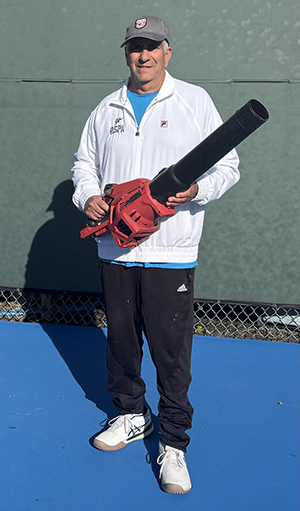
I often arrived an hour early just to blow them off, getting dust in my eyes and wondering, Are the football, basketball, and baseball coaches out here cleaning their fields? (Spoiler: They were not.) It reminded me of working on a movie when the studio would say, Sorry, cut this, cut that—there's no budget for this, and there is no budget for that. Just like Hollywood and the moguls in the black towers, the administration wouldn't budge.
I did some research on the 1963 movie disaster, Cleopatra—the film that nearly bankrupted 20th Century Fox and caused a worldwide spectacle with the public affair of Richard Burton and Elizabeth Taylor. Someone thought it was a brilliant idea to build Rome in England, but when the rains came, the sets washed away. Well, someone at No Name thought it was a great idea to build tennis courts on a bad foundation. Predictably, they cracked, chipped, and became unplayable. Cleopatra would not be playing on these courts. Darryl Zanuck would have a kanipshin.
Despite the facilities, we had an incredible team, with two nationally ranked blue-chip players would be joining us. With three other standout players, we were set to dominate. We lost just two regular-season matches and made it to the CIF Division 1 semifinals—the best showing any No Name high school tennis team had ever accomplished. Our blue-chippers lost in the finals of the CIF individuals. I had visions of Steph doing the 1987 Fatal Attraction thing. I took special care to lock up my bunny.
Did that change how the administration viewed us? Nope. Aside from the final matches, no one from the school bothered to attend our games. The girls noticed. They felt devalued, and honestly, they were right. These girls, all girls in athletic programs, deserve more.
The biggest challenge wasn't the players or the administration—it was the drama behind the scenes. I had an amazing assistant coach; I called the Chief, a former WTA pro who had coached Division 1 tennis. We worked well together, developed a solid program, and focused on both winning and learning.
But just like in the movie business, personalities clashed. Parents (a.k.a. agents) had unrealistic expectations, wanting more playing time for their kids regardless of skill. The administration (the studio) was stingy with the budget, refusing to make basic improvements. And Steph (the bitter ex-director) kept causing problems. Just like in Hollywood, nothing is a secret, and her meddling filtered back to me.
At one point, I left town for the RSPA (Racket Sports Professional Association) convention, leaving The Chief in charge. Without telling me, Steph and her husband showed up at a match, walked onto the courts, and started coaching—without letting me know in advance. This was deceptive and disrespectful. Imagine a fired director showing up on set and hijacking the production. In Hollywood, they might wind up with severed horse head in their bed. (The Godfather 1972)
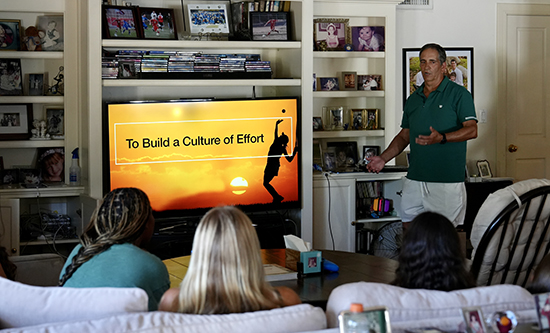
Discipline had also been lax before I arrived. Players had no real consequences for missing matches. One of our top players—a brilliant student also involved in robotics—skipped a crucial match to work on a project in the lab. We lost by one game. Had she been there, we would have won. I reminded her of Spock's wisdom from Star Trek II: The Wrath of Khan: "The needs of the many outweigh the needs of the few—or the one." I told her privately (and later in front of the team) that her absence cost us the match.
Her mom called Steph, Steph contacted the athletic director (whom I had already clued in), and she agreed with what I did. But suddenly, I had a full-blown controversy on my hands. It felt like the time a fired producer I worked with called all the studios and tried to sabotage the distribution of a movie I directed. Again—movies and tennis. Oh well, Clint, just make my day.
Despite the chaos, the team grew closer. The girls were terrific, they were winning, and most importantly, they were learning. I found ways to encourage the kids who didn't get much playing time, making sure they knew they were valued. Just like in film, there are no small parts, only small actors.
We stormed through the early CIF rounds in Division 1 before finally falling to Bentlyville HS, a powerhouse program with an engaged administration and a supportive community. That was the kind of program I wanted to build. But at No Name, teachers clashed with the administration, and coaches, some even threatened students with lower grades for missing class—even when they were at scheduled matches.
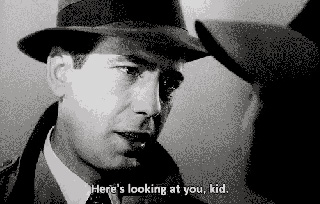
At the end of the season, I was beyond proud of our effort. But No Name refused to budge on our meager salaries or make the necessary changes to the facility and program, so with a heavy heart, I mounted my steed, rode away on my blazing saddle, and headed into the sunset. My life as a high school coach ended, and a remake was not in the cards. Just as Rick stood on the tarmac watching Ilsa and Victor get on the plane in Warner Brothers' 1942 classic Casablanca, I glanced back at No Name's broken tennis courts and uttered under my breath, "Here's looking at you, kid."




